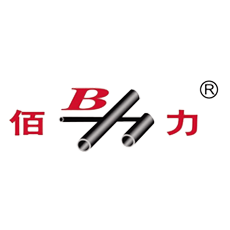Jul . 23, 2024 14:27 Back to list
Discover High-Quality Abrasion Resistant Hydraulic Hoses for Reliable Performance and Longevity
The Importance of Buying Abrasion-Resistant Hydraulic Hose Products
In the world of hydraulic systems, reliability and durability are paramount. One of the essential components that ensure the longevity of these systems is the hydraulic hose. Among various types of hydraulic hoses available in the market, abrasion-resistant hydraulic hose products stand out for their remarkable ability to withstand harsh conditions and everyday wear and tear. This article delves into the importance of investing in abrasion-resistant hydraulic hoses, highlighting their features, benefits, and the factors to consider when making a purchase.
Understanding Abrasion-Resistant Hydraulic Hoses
Abrasion-resistant hydraulic hoses are specifically designed to endure the wear caused by friction and environmental factors. They are constructed using advanced materials that can withstand abrasive elements, such as dust, dirt, and rocks, which can compromise the integrity of standard hoses over time. These hoses often feature a rugged outer cover that not only protects the inner components but also enhances the overall performance of hydraulic systems.
Key Features of Abrasion-Resistant Hydraulic Hoses
The primary feature that distinguishes abrasion-resistant hoses from standard hoses is their material composition. These hoses typically incorporate synthetic rubber or thermoplastic materials, reinforced with layers of fiberglass or textile to increase their strength and durability. Many models also come with added resistance to oils, chemicals, and extreme temperatures, making them suitable for various applications, such as construction, agriculture, and industrial machinery.
Additionally, a crucial feature to consider is the flexibility of the hose. Abrasion-resistant hoses are designed to remain flexible, even when subjected to extreme conditions. This flexibility is vital for ensuring easy installation and maneuverability within tight spaces.
Benefits of Choosing Abrasion-Resistant Hydraulic Hoses
buy abrasion resistant hydraulic hose products

Investing in abrasion-resistant hydraulic hoses can lead to significant long-term benefits. First and foremost, their durability translates into reduced maintenance costs. Businesses often face downtime and expenses related to replacing standard hoses that wear out quickly. By opting for abrasion-resistant hoses, operators can minimize the frequency of replacements and repairs, ensuring that their machinery remains operational for longer periods.
Moreover, these hoses contribute to improved safety. Hydraulic systems can be hazardous if not properly maintained. A breach in a standard hose can lead to leaks, which may cause accidents or injury. By using abrasion-resistant hoses, the risk of such incidents is significantly lowered, contributing to a safer workplace environment.
Lastly, the performance efficiency of hydraulic systems is enhanced with the use of high-quality abrasion-resistant hoses. These hoses maintain consistent fluid flow and pressure, ensuring that machinery operates at peak performance levels. This efficiency is crucial for meeting production demands and maintaining operational productivity.
Factors to Consider When Purchasing
When looking to buy abrasion-resistant hydraulic hoses, it's essential to consider several factors. First, assess the specific requirements of your hydraulic system, including the pressure ratings, temperature ranges, and the types of fluids involved. It's also advisable to research reputable manufacturers known for producing high-quality hoses.
Another vital aspect is the certification and compliance of the hoses. Ensure that the products meet industry standards and regulations, as this guarantees their reliability and safety. Lastly, consider the warranty offered by the manufacturer as a reflection of their confidence in the product's quality.
Conclusion
Investing in abrasion-resistant hydraulic hoses is a wise decision for businesses and individuals relying on hydraulic systems. By opting for these robust and reliable hoses, users can enhance the durability of their equipment, optimize performance, and prioritize safety. When making a purchase, consider the specific needs of your application, choose reputable suppliers, and pay attention to quality certifications to ensure you’re getting the best product available.
-
Best Four Steel Wire Spiral Hose Hydraulic R12 – Durable High-Pressure Hose Manufacturer
NewsJul.08,2025
-
High-Quality 1/4 Hydraulic Hose – Soft, Flexible & Durable Rubber Hoses for Industrial Use
NewsJul.08,2025
-
1 1 2 Inch Hydraulic Flexible Hose - Durable, Reliable, High-Pressure Solutions
NewsJul.07,2025
-
High-Quality 1 2 Rubber Hose - Durable, Flexible Hydraulic Solutions
NewsJul.07,2025
-
Discover SAE Hydraulic Hose Types - High Quality & Durable Hoses from Leading Factory Supplier
NewsJul.06,2025
-
High Pressure Wire Hydraulic Rubber Hose Supplier Durable & Reliable 1SN Hose Solutions
NewsJul.06,2025
